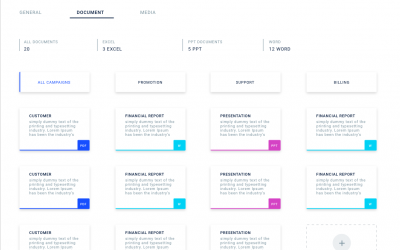
Master conflict resolution skills to ensure effective conflict resolution, which is vital in contact centers. Handling customer complaints and internal disputes requires both skill and patience. Handling customer complaints and internal disputes requires skill and patience. To create a positive customer experience and a harmonious work environment, agents must develop strong conflict resolution abilities.
Embrace Active Listening
First and foremost, active listening is key. Agents should listen attentively without interrupting or judging the customer. Consequently, this approach shows genuine concern and helps agents understand the issue better, leading to mutually beneficial solutions.
Cultivate Empathy
Moreover, empathy is crucial in building rapport and trust. Train agents to understand and share customers’ emotions and feelings. By putting themselves in the customer’s shoes, agents can foster more positive outcomes.
Allow Customers to Express Themselves
Furthermore, giving customers the space to express their emotions is essential. Allowing them to vent their frustrations demonstrates care and a willingness to work towards a resolution. As a result, this can help calm them down and foster cooperation.
Remain Calm and Professional
Nevertheless, maintaining composure and professionalism is crucial in challenging situations. Encourage agents to take a step back, breathe, and control their tone of voice. This approach facilitates effective communication.
Focus on Solutions
Instead of dwelling on the problem, concentrate on finding solutions. Collaborate with all involved parties to identify mutually beneficial resolutions that address their concerns.
Escalate When Necessary
Some conflicts require escalation to higher authorities for prompt resolution. This proactive step shows customers that their concerns are taken seriously and will be addressed at the appropriate level.
Practice Patience
Additionally, conflicts can take time to resolve. Demonstrating patience and understanding can alleviate customer dissatisfaction, even if the solution is not immediately apparent.
Use Soft Language
Mindful word choice is important in conflict situations. Therefore, avoid sharp language that may escalate the situation, and opt for softer language that encourages cooperation and calmness.
Apologize When Needed
If the company is at fault, a sincere apology can set a positive tone for the interaction. Taking responsibility helps soothe customer anger and shows a commitment to resolving the issue.
Don’t Take It Personally
Finally, agents should remember that customer frustration is rarely personal. Viewing themselves as a bridge between the customer and the company reassures customers that they are there to assist and support them.
By implementing these conflict resolution strategies, your contact center can effectively manage conflicts and maintain positive relationships with customers. Indeed, these skills are valuable not only in the workplace but also in personal and social interactions. A successful conflict resolution process is integral to customer satisfaction and upholding your brand’s reputation.
Master Conflict Resolution Skills to ensure effective conflict resolution, which is vital in contact centers. Handling customer complaints and internal disputes requires both skill and patience.
In conclusion, by mastering conflict resolution skills, contact center agents can significantly improve customer satisfaction and create a more harmonious work environment. These essential skills not only help in resolving conflicts efficiently but also contribute to maintaining positive relationships with customers and colleagues alike.
Contact Us
Ready to enhance your contact center’s conflict resolution skills? Contact us today for training and support to help your agents manage conflicts effectively and maintain a positive customer experience.
Categories
- Agent Performance & Training
- AI solutions
- Asterisk
- Business Growth
- Call Center Performance & Productivity
- Call Center Software Platform
- Call Center Technology & AI Integration
- Call Center Training
- Call Center Workforce Management
- Call Monitoring
- Cloud-Based Solutions
- Customer Experience
- Data Security
- General
- Insights
- Integrated Customer Service
- News
- Omnichannel Communication Strategy
- Omnichannel Support
- Quality Assurance
- Tech


